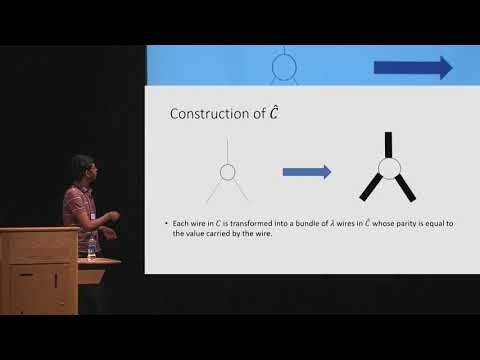CryptoDB
Unconditionally Secure Computation Against Low-Complexity Leakage
| Authors: | |
|---|---|
| Download: |
|
| Abstract: | We consider the problem of constructing leakage-resilient circuit compilers that are secure against global leakage functions with bounded output length. By global, we mean that the leakage can depend on all circuit wires and output a low-complexity function (represented as a multi-output Boolean circuit) applied on these wires. In this work, we design compilers both in the stateless (a.k.a. single-shot leakage) setting and the stateful (a.k.a. continuous leakage) setting that are unconditionally secure against $$\mathsf {AC}^0$$ leakage and similar low-complexity classes.In the stateless case, we show that the original private circuits construction of Ishai, Sahai, and Wagner (Crypto 2003) is actually secure against $$\mathsf {AC}^0$$ leakage. In the stateful case, we modify the construction of Rothblum (Crypto 2012), obtaining a simple construction with unconditional security. Prior works that designed leakage-resilient circuit compilers against $$\mathsf {AC}^0$$ leakage had to rely either on secure hardware components (Faust et al., Eurocrypt 2010, Miles-Viola, STOC 2013) or on (unproven) complexity-theoretic assumptions (Rothblum, Crypto 2012). |
Video from CRYPTO 2019
BibTeX
@article{crypto-2019-29893,
title={Unconditionally Secure Computation Against Low-Complexity Leakage},
booktitle={Advances in Cryptology – CRYPTO 2019},
series={Lecture Notes in Computer Science},
publisher={Springer},
volume={11693},
pages={387-416},
doi={10.1007/978-3-030-26951-7_14},
author={Andrej Bogdanov and Yuval Ishai and Akshayaram Srinivasan},
year=2019
}

